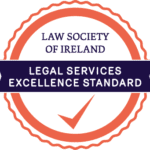The Nursing Home Support Scheme, commonly known as the Fair Deal 2025 Scheme, provides financial assistance for nursing home care. However, applicants and their families must be aware of several key considerations to ensure compliance and effective estate planning.
1. Full Disclosure of Assets
When submitting an application under the Fair Deal 2025 Scheme, it is imperative to provide a comprehensive and accurate disclosure of all assets. This includes bank accounts, savings, investments, and any other financial holdings. Failure to declare assets may have significant repercussions. Upon the applicant’s passing, the Revenue Commissioners will share details of their financial affairs with the Health Service Executive (HSE), which oversees the scheme. Any discrepancies identified posthumously could result in a reassessment of the application, and the HSE may seek to recover funds from the estate.
2. The Five-Year Clawback Rule
Applicants should be mindful of the five-year rule regarding asset transfers and gifts. Any financial transfers, gifts, or reductions in assets made within five years prior to the application may still be considered in the assessment. The purpose of this provision is to prevent artificial reduction of assets to maximise state support. Prospective applicants considering the transfer of assets should do so well in advance of this five-year window to avoid retrospective assessment.
3. Sale of the Family Home While in Care
Since 2021, the sale of a family home while the applicant is in a nursing home does not result in reassessment of assets for the purposes of the Fair Deal 2025 Scheme. Previously, proceeds from such a sale could increase the applicant’s contribution towards care costs. This policy change allows applicants greater flexibility in managing their financial affairs without the concern of additional financial obligations under the scheme.
4. Estate Distribution Delays Due to HSE Clearance
Following the applicant’s passing, the distribution of their estate cannot proceed until the HSE provides clearance. This process involves the HSE’s Tullamore office working in conjunction with Revenue to review financial details of the estate. As a result, there may be delays in settling the estate and distributing assets to beneficiaries. Families should be prepared for potential administrative delays and factor this into their estate planning considerations.
5. Direct Payment for Care as an Alternative
In certain cases, it may be more advantageous for individuals with sufficient financial resources to pay for nursing home care privately rather than applying for the Fair Deal Scheme. Private payment may provide greater flexibility, particularly during periods when nursing home places are in high demand, as some care facilities may prioritise private-paying residents. Furthermore, using personal savings for care expenses can reduce the amount of assets subject to the Fair Deal contribution upon passing.
Conclusion
The Fair Deal 2025 Scheme offers essential financial support for nursing home care, but applicants should approach the process with careful planning and full transparency. Key considerations include the five-year asset review period, posthumous application reassessment, and potential delays in estate distribution. Seeking professional legal and financial advice can provide invaluable guidance in ensuring that assets and estate affairs are managed in accordance with both regulatory requirements and the applicant’s wishes.


